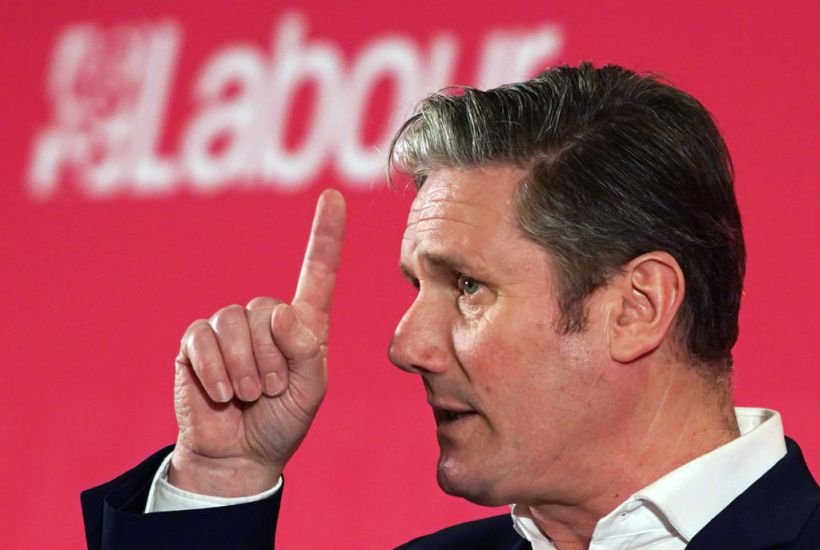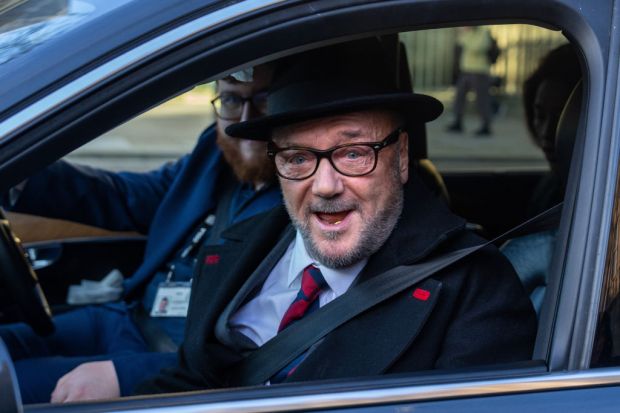It was not the acceptance speech he could have anticipated making when the campaign for the Labour leadership began many months ago, but it was one Keir Starmer used to define the type of leader he would be during the pandemic, and beyond.
Recorded before he was confirmed as Jeremy Corbyn’s successor, Starmer spent most of his speech addressing, not Labour’s electoral crisis, but the national emergency provoked by Covid-19. Significantly, he talked to the country first, rather than his party’s members – 56.2 per cent of whom had just made him leader.
Elected promising to reunite Labour, Starmer in his speech highlighted the ties that bind all Britons. For the coronavirus crisis had revealed what is universally important, he stated, that is: ‘Our connections with those that we don’t know. A greeting from a stranger, a kind word from a neighbour. These make up society. They remind us that we share our lives together. We have to trust one another and look after one another.’
The emergency, he went on, had revealed such qualities, from those offering to help vulnerable neighbours to others volunteering to work in the NHS. ‘Our willingness to come together like this as a nation has been lying dormant for too long,’ he claimed, arguing that, ‘When millions of us stepped out onto our doorsteps to applaud the carers visibly moved there was hope of a better future’.
Rather than focus on the class divisions separating Britons – something Corbyn and his followers obsessively stressed, to little effect – Starmer highlighted the moral virtues that unite them. Consciously or not he echoed Tony Blair’s 1995 speechto the Labour conference in which he argued that ‘Socialism … is a moral purpose to life, a set of values, a belief in society, in co-operation, in achieving together what we cannot achieve alone … We are not simply people set in isolation from one another, face to face with eternity, but members of the same family, same community, same human race’.
Blair used his moralism to distinguish New Labour from the need for a bigger state. Starmer instead employed it to make the case for more government intervention, claiming the nature of the crisis meant, ‘we cannot go back to business as usual. This virus has exposed the fragility of our society. It’s lifted a curtain’. And while the heroes of this crisis, he listed, as those working for the public sector, that is ‘NHS staff, our care workers, our ambulance drivers, our emergency services, our cleaners, our porters … [it] has brought out the resilience and human spirit in all of us’.
This was an exceptionally clever speech, one which stressed the moral virtues of (Thatcherites look away now) ‘society’, lauded public sector workers risking their lives in the fight against coronavirus, while highlighting the need for ‘good government, a government that saves lives and protects our country’. In other words – without rancour and in the most reasonable tones – Starmer positioned his Labour party as the solution to the country’s current ills and made an argument for why its approach will be needed well after the crisis has abated. In this he echoed another Labour leader, Clement Attlee, who told his party conference in May 1940, just as German forces were breaking through Allied lines and making the charge towards Dunkirk: ‘the world that must emerge from this war must be a world attuned to our ideals’.
Whether, like Attlee, Starmer will end up as Prime Minister, is not completely in his hands. His message was perfectly pitched to evoke a positive response from a nation whose government appears befuddled by the coronavirus crisis. But he will have to fight to get that message across in the media when headlines continue to be dominated by rising death rates and speculations about when, if ever, the crisis will end.
Starmer also has a fractious party to manage. It is unclear how Labour’s far left will respond to his victory. Some, like the FBU leader Mark Wrack, have already fired a warning shot across the new leader’s bows; while Momentum warns that they will hold Starmer to account if he retreats from Corbynism. Although Owen Jones, sometime Corbyn mouthpiece, seeks to now be Starmer’s ‘critical friend’. A leader who cannot unite his party can hardly claim to be able to unite the country.
Got something to add? Join the discussion and comment below.
Get 10 issues for just $10
Subscribe to The Spectator Australia today for the next 10 magazine issues, plus full online access, for just $10.
Steven Fielding is professor of political history at the University of Nottingham and is writing ‘The Labour Party: from Callaghan to Corbyn’ for Polity Press, to be published in 2021. On Twitter he is @PolProfSteve




















Comments
Don't miss out
Join the conversation with other Spectator Australia readers. Subscribe to leave a comment.
SUBSCRIBEAlready a subscriber? Log in